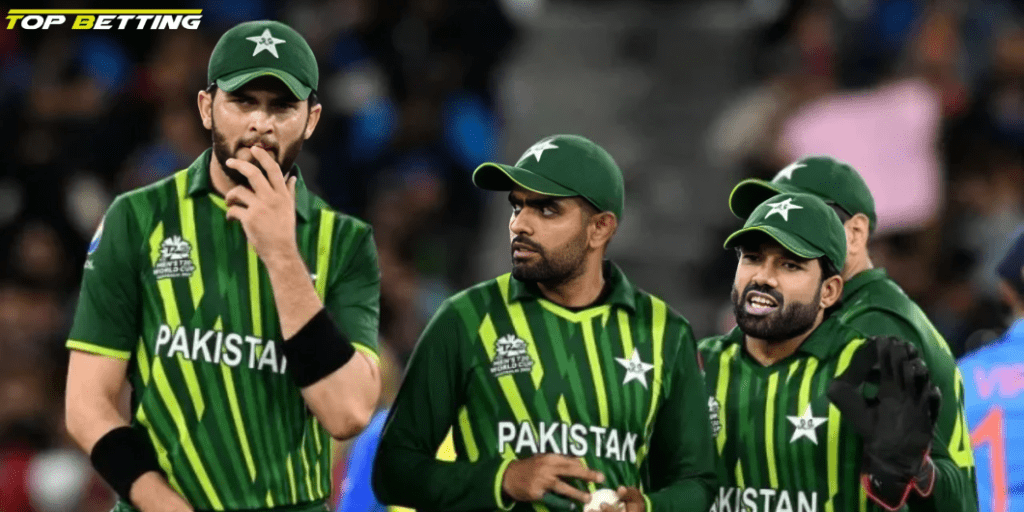
PCB did not issue NOC to Babar Azam and Shaheen
Understanding the Role of NOCs in International Cricket
The Pakistan Cricket Board (PCB) plays a crucial role in the development and management of cricket in the country. One of its primary responsibilities is to issue No Objection Certificates (NOCs) to Pakistani cricketers who wish to participate in various domestic and international cricket leagues around the world. These NOCs serve as a green light for players to represent their respective franchises or national teams in these tournaments, ensuring that their participation does not clash with their commitments to the Pakistan national team or domestic competitions.
The issuance of NOCs is a delicate balancing act, as the PCB must consider the long-term interests of the national team, the growth and exposure of individual players, and the overall development of the sport in the country. Granting NOCs allows players to gain valuable experience, hone their skills, and potentially increase their market value, which can ultimately benefit the national team’s performance. However, the PCB must also ensure that the national team’s preparations and participation in key tournaments are not compromised by the absence of its star players.
In the case of Babar Azam and Shaheen Afridi, the PCB’s decision to deny them NOCs has sparked a significant debate within the cricketing community. As two of Pakistan’s most talented and influential players, their participation in overseas leagues was highly anticipated, both by fans and the players themselves. The PCB’s refusal to grant them the necessary permissions has left many questioning the rationale behind this decision and its potential impact on the players’ careers and the national team’s future.
Babar Azam and Shaheen Afridi: The Stars in Question
Babar Azam is widely regarded as one of the best batsmen in the world, with his consistent performances and impressive batting averages across all formats of the game. The 28-year-old captain of the Pakistan national team has been a driving force behind the team’s recent successes, leading them to the semifinals of the 2021 T20 World Cup and the final of the 2022 Asia Cup. His ability to adapt to different playing conditions and his mastery of various cricketing shots have made him a sought-after player in the global cricket market.
Similarly, Shaheen Afridi has emerged as a formidable fast bowler on the international stage. At just 22 years old, Shaheen has already established himself as a crucial member of the Pakistan national team, with his ability to extract pace, bounce, and swing from the pitch. His performances in major tournaments, such as the 2021 T20 World Cup and the 2022 Asia Cup, have earned him widespread acclaim and recognition as one of the best young fast bowlers in the world.
Both Babar Azam and Shaheen Afridi were expected to participate in various T20 leagues around the world, including the lucrative Indian Premier League (IPL), the Pakistan Super League (PSL), and other franchise-based tournaments. These opportunities would have not only provided them with valuable experience and exposure but also allowed them to showcase their skills to a global audience, potentially increasing their market value and negotiating power in future contract negotiations.
The PCB’s Decision: Rationale and Implications
The PCB’s decision to deny NOCs to Babar Azam and Shaheen Afridi has raised several questions and concerns within the cricketing community. The board’s official stance on the matter is that it aims to ensure the availability of its top players for domestic tournaments and the national team’s commitments, particularly in the lead-up to major international events such as the 2023 ODI World Cup and the 2024 T20 World Cup.
The PCB’s argument is that by restricting the players’ participation in overseas leagues, it can better manage their workload, prevent the risk of injuries, and ensure that they are adequately prepared for national team duties. This approach, the board believes, will ultimately benefit the national team’s performance and the development of the sport in Pakistan.
However, this decision has been met with criticism from various quarters. Many argue that denying these players the opportunity to participate in overseas leagues will hinder their growth and development as cricketers. The exposure and experience gained from playing in different conditions and against varied opposition can be invaluable, especially for young players like Shaheen Afridi, who are still in the formative stages of their careers.
Furthermore, the denial of NOCs could also have financial implications for the players. Participation in high-profile leagues, such as the IPL, can be a significant source of income for cricketers, and the inability to take part in these tournaments could potentially impact their earning potential and overall financial security.
Conclusion
The PCB’s decision to deny NOCs to Babar Azam and Shaheen Afridi has undoubtedly sparked a significant debate within the cricketing community. While the board’s stated rationale of ensuring the availability of its top players for national team commitments and domestic tournaments is understandable, the potential long-term consequences of this decision must be carefully considered.

The denial of these opportunities could hinder the players’ growth and development, limit their earning potential, and potentially impact the broader cricket ecosystem in Pakistan. As the controversy continues to unfold, it is crucial for the PCB to engage in open and transparent dialogues with the players, their representatives, and other stakeholders to explore mutually beneficial solutions.











